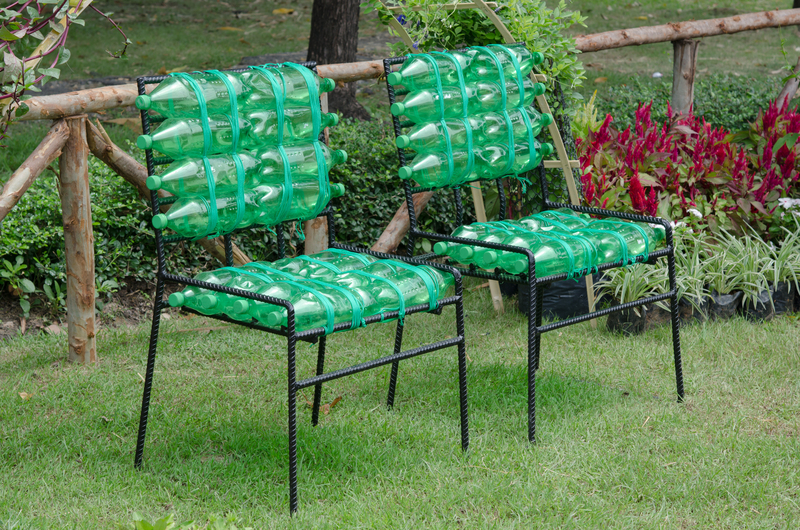Avoiding Hidden Costs in Bulky Waste Item Removal: A Comprehensive Guide
Bulky waste item removal is a necessity for homeowners, renters, and businesses facing the challenge of disposing of large items like furniture, appliances, mattresses, or renovation debris. However, what many people don't anticipate are the hidden costs associated with getting rid of bulky waste. Unexpected expenses can quickly inflate your waste removal budget if you aren't careful. In this article, we'll explore the many facets of bulky waste removal, identify the potential hidden charges, and provide actionable tips to ensure your experience is both efficient and cost-effective.

Understanding Bulky Waste Item Removal
First, let's define what constitutes bulky waste. These are items that are too large or heavy for regular curbside collection. Examples include:
- Sofas, beds, and wardrobes
- Refrigerators, washing machines, and other large appliances
- Carpets, rugs, and flooring materials
- Garden waste such as tree branches and fencing
- Construction waste, including drywall, bricks, and doors
Bulky waste item removal services range from municipal pickups to hiring private junk removal companies or renting dumpsters. Each option carries its own set of potential costs and considerations. Understanding these alternatives is the first step in avoiding unexpectedly hefty bills.
The Real Cost of Bulky Waste Removal
Why do so many people end up paying more than anticipated for removing large items? The answer lies in the layers of fees, surcharges, and overlooked service details. Some common sources of hidden costs in bulky waste removal include:
- *Weight limits*: Many companies quote prices based on item count or container size but add significant fees for exceeding weight limits.
- *Distance/Covered area charges*: Extra charges may apply if your property is outside a standard service area.
- *Disassembly and labor fees*: If items need to be broken down for removal or located in hard-to-reach places, you may face additional labor charges.
- *Booking fees or minimum charges*: Some providers have minimum pricing or booking fees that aren't always clearly stated upfront.
- *Environmental fees*: Items requiring special disposal, such as refrigerators or electronics, may accrue extra government-mandated charges.
- *Permit fees*: Placing a skip on public property often requires a permit from your local council--another hidden cost many overlook.
Types of Bulky Waste Removal Services
Let's review the main bulky waste disposal methods, examining how hidden costs can occur in each.
1. Municipal Bulky Item Pickup
Many local councils offer scheduled collections for bulky items. While this service may appear free or charged with a flat rate, be aware of the following potential extra costs:
- Limits on the number or size of items
- Charges for exceeding the specified volume
- Restrictions on certain items (e.g., mattresses, electronics, or hazardous materials)
- Penalties if items are placed outside the allowable window or on incorrect pickup days
Tip: Always check your council's website for up-to-date information, including eligibility, accepted items, scheduling, and potential supplementary fees.
2. Private Junk Removal Companies
Hiring a private company often offers convenience--many will remove items directly from your home, saving you heavy lifting. However, hidden fees are common in the form of:
- "Overage" charges for extra weight or unexpected volume
- Excess labor fees if access is difficult (e.g., carrying items up or down stairs)
- Disposal or recycling surcharges for items like fridges, mattresses, or electronics
- Travel fees if you're outside their main service radius
- Emergency/short notice or after-hours booking surcharges
*Always ask for a detailed, written quote that specifies labor, disposal, and any potential surcharges. Compare reviews and get multiple estimates to avoid being caught off-guard.*
3. Skip Bin or Dumpster Rental
For large-scale cleanouts, renting a skip bin or dumpster is common. Cost structures typically factor in rental duration, bin size, and disposal type. Hidden costs include:
- Charges for mixed loads (e.g., general waste mixed with construction debris)
- Fees for overfilling or exceeding weight restrictions
- Extra days beyond the agreed rental period
- Permit requirements if placed on public property
- Fines for prohibited materials (electronics, chemicals, tires, etc.) found in your bin
Ask for a clear breakdown of what's included, weight limits, allowed contents, penalties, and permit fees. Know your council's rules for skip placement to avoid fines.
Commonly Overlooked Hidden Costs: What to Watch Out For
Environmental Compliance Fees
Special handling is needed for items containing refrigerants or hazardous components, such as old fridges, televisions, HVAC units, batteries, and paint. These items incur additional environmental disposal fees that may or may not be disclosed up front. Always clarify how these are handled and what charges apply.
Access and Location Charges
Extra charges often arise if your bulky items aren't located on the ground floor or are far from parking areas. Steps, elevators, or long carrying distances can trigger labor surcharges, so ensure the provider assesses your site conditions during the quote process.
Weight Calculation Methods
Some companies base their pricing on visual estimates or predetermined averages, but if your load is heavier than expected (as with construction debris, wet furniture, or soil), weighbridge tickets may reveal a much higher cost post-collection.
Unforeseen Delays and Waiting Time
Providers may charge waiting fees if your items aren't ready for immediate pickup, if blocked driveways slow access, or if you fail to provide clear instructions. Minimize such costs by preparing items ahead of your scheduled pickup window.
Weekend or After-Hours Surcharges
If you require collection outside standard working hours, be aware of out-of-hours or emergency response premiums.
How to Avoid Hidden Costs in Bulky Waste Item Removal
1. Get a Detailed, Upfront Quote
- Request a site visit if possible: Allow providers to see your items and access points first-hand to ensure an accurate quote.
- Ask for a breakdown: Insist on a written, itemized quote specifying labor, disposal, surcharges, and possible penalties.
- Clarify ambiguous terms: If the quote includes vague "environmental fees" or "service charges," ask for specifics.
2. Understand Local Regulations and Permits
- Research your local council's requirements for skip bins placed on the street or verge.
- Factor in both the permit cost and duration so you don't risk late return fees.
3. Prepare Your Items in Advance
- Disassemble what you can: If possible, break down furniture to save on labor charges.
- Move items closer to access points: Place them near entryways or curbside to reduce handling time and costs.
- Separate prohibited or special disposal items: Have these ready for specialist pickup to avoid fines or surcharges.
4. Avoid Mixing Waste Types
- Don't throw hazardous, green, and general bulky waste together. Mixing waste can multiply disposal fees, especially if sorting is required post-collection.
5. Compare Multiple Providers
- Get at least three written quotes from different companies.
- Check reviews for mentions of unexpected additional charges or poor communication.
6. Ask About Volume vs. Weight Pricing
- Check whether your provider charges by volume (cubic yards/meters), by item, or by weight.
- Request information on how overages are calculated and what the surcharge rates are for going over limits.
Eco-Friendly and Cost-Saving Alternatives
In addition to managing costs, exploring environmentally responsible bulky waste disposal can help you avoid unnecessary fees.
- Donate or sell usable items: Charities and second-hand stores may collect items for free, eliminating removal costs and benefiting those in need.
- Use local recycling centers: Some centers accept certain bulky waste types at lower rates. Check their accepted items and restrictions.
- Community swap days or council collections: Participate in scheduled collection events--often low- or no-cost for residents.
- Upcycle or repurpose: Turn old furniture into new projects, saving on disposal and reducing landfill impact.
Key Questions to Ask Your Bulky Waste Removal Provider
- What is included in your quote?
- Are there extra charges for "difficult" access or labor?
- How do you calculate surcharges for overweight or oversized items?
- Are there additional environmental, administrative, or permit fees?
- What is your policy on prohibited or special disposal items?
- How is payment handled if the job scope changes on site?
- Can you provide references or point to independent reviews?

The Benefits of Transparent, Upfront Pricing in Bulky Waste Removal
Working with a reputable provider with transparent pricing not only saves money but also leaves you better informed and less stressed. Seek out companies that emphasize:
- Clear itemized pricing
- No-obligation site inspections
- Flexible scheduling
- References and strong online reviews
- Open communication and written policies
By understanding what contributes to hidden costs in bulky waste removal and proactively addressing these potential pitfalls, you protect your budget and the environment, ensuring your next large-item disposal is straightforward and affordable.
Conclusion: Make Bulky Waste Removal Hassle-Free
To avoid hidden costs in bulky waste item removal, the keys are research, preparation, and asking the right questions before booking any service. Start by evaluating your disposal options, get detailed written quotes, check for additional local permit or regulatory fees, and always double-check the fine print. With a little planning and due diligence, you can ensure that your bulky item removal is cost-effective, environmentally friendly, and free from unwelcome surprises.
Remember: The cheapest quoted price is not always the best deal if it leads to unforeseen charges. Prioritize providers who are transparent, reliable, and environmentally conscious--your wallet and the planet will thank you!